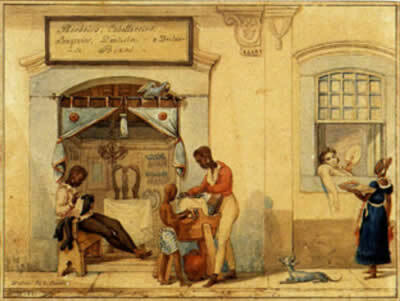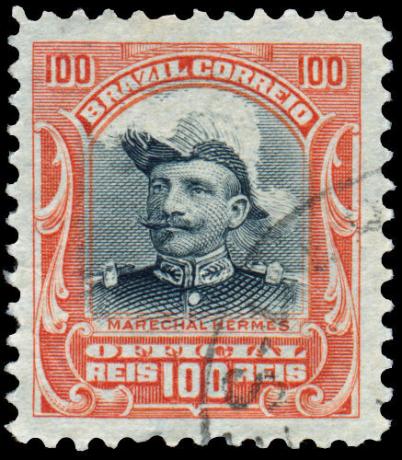During the end of the 18th century and during the first half of the 19th century, mainly, the two main cities Brazilian cities, Rio de Janeiro and Salvador, heard in their streets perhaps the first expression of a genuine popular music produced in Brazil: the music of barbers.
Profession exercised by slaves for gain or by freed slaves, the profession of shaving and cutting hair was quick to perform, guaranteeing free time for these workers. The function was also due to the social division of urban labor that emerged in the two cities, important commercial centers of the colony and the Empire. In addition to shaving and music, barbers were also used to extract teeth and apply leeches.
Barbers, or barber suits, used string, wind, and percussion instruments. They usually learned from a master barber how to use the instruments. There was also no use of sheet music or anything like that, and the Africans learned “from ear" both the way of playing the instruments and the performance of the songs, showing a self-education in the practice.
Barber suits were also the social groups that started to offer an urban service that was not available in these cities, music intended for public entertainment. Religious festivals, the doors of churches where masses were celebrated and other public ceremonies were the places where barbers performed.
Do not stop now... There's more after the advertising ;)

Barber Shop, by Jean-Baptiste Debret (1768-1848)
The way of playing was characterized by spontaneity and by the adequacy of music composed by others to the barbers' own playing style. European chroniclers who passed through the cities pointed out at various times the dissonance, lack of rhythm and the peculiar way of playing of barbers. The musical genres played included polkas, popular chulas and lundu.
In the second half of the 19th century, barber music lost space in the urban scene. In Rio de Janeiro, barber suits were mainly replaced by choro groups that emerged in the city. In Salvador, slave owners began to create bands and orchestras with Africans who would occupy the space previously held by barbers, upon payment for performances.
With the end of barber music, the first form of popular musical production in Brazilian cities ended, emerging other social groups that would express their artistic productions, with new aesthetic forms and new contents.
By Tales Pinto
Graduated in History
Would you like to reference this text in a school or academic work? Look:
PINTO, Tales dos Santos. "The music of barbers in imperial cities"; Brazil School. Available in: https://brasilescola.uol.com.br/historiab/a-musica-barbeiros-nas-cidades-imperiais.htm. Accessed on June 27, 2021.

